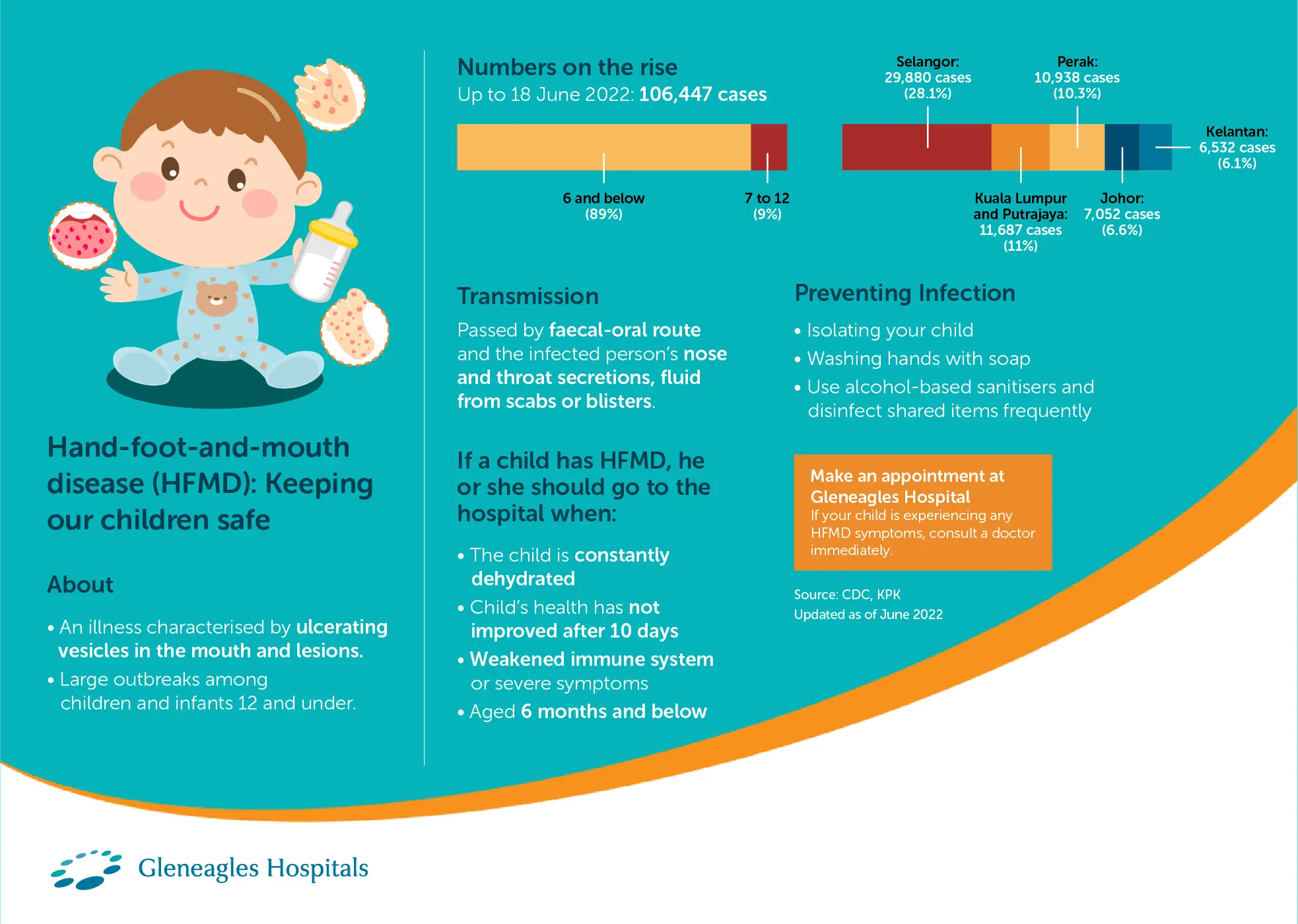Topics
In Malaysia, hand-foot-and-mouth disease (HFMD) has been a growing concern due to the high number of outbreaks, particularly in nurseries and preschool settings.
Up to 18 June 2022, approximately 106,447 HFMD cases were recorded. 89% of the cases were recorded among children aged 6 and below while 9% were among those aged between 7 and 12.
- Selangor: 29,880 cases (28.1%)
- Kuala Lumpur & Putrajaya: 11,687 cases (11%)
- Perak: 10,938 cases (10.3%)
- Johor: 7,052 cases (6.6%)
- Kelantan: 6,532 cases (6.1%)
The majority of outbreaks occurred at:
- Nurseries and preschool: 56%
- Household: 40%
- Day-care centres: 3%

About Hand-Foot-and-Mouth Disease (HFMD)
Hand-foot-and-mouth (HFMD) is a common infectious disease seen in children and infants. The disease is usually mild and self-limiting. HFMD symptoms include:
- Fever
- Sore throat
- Painful mouth sores
- A skin rash with blisters on the hands, feet, and sometimes the buttocks
HFMD is caused by viruses, and the individual infected with HFMD is contagious. The virus spreads from person to person through faecal-oral route and the infected person’s nose and throat secretions, fluid from scabs or blisters.
An individual with HFMD is most contagious during the first week of illness.
When Should a Child Seek Treatment for HFMD
- When the child is not drinking enough water
- When the child’s condition is not improving after 10 days
- If the child has a weakened immune system
- If the child has severe symptoms such as high fever with chills
- If the child is younger than 6 months
HFMD Treatment and Care
To treat hand, foot, and mouth disease at home, focus on relieving symptoms as the infection typically clears up on its own within 7 to 10 days. There is no specific cure, and antibiotics are not effective. To ease discomfort:
- Drink cool fluids to soothe the throat and prevent dehydration, but avoid acidic drinks like fruit juice.
- Eat soft foods, such as yoghurt, and avoid hot, spicy, or salty foods that may irritate mouth sores.
- Take paracetamol or ibuprofen to reduce fever and relieve pain. Avoid giving aspirin to children.
These measures can help your child feel more comfortable while recovering.
Preventing HFMD Infection
- Wash your hands with soap and water, especially after using the toilet, changing diapers, before preparing food and before eating.
- Use an alcohol-based sanitiser if soap and water are not available.
- Disinfect touched surfaces and shared items frequently.
- Avoid touching the face with unwashed hands.
- Avoid close contact with individuals who are sick.
- Ensure the child stay at home if he or she is showing symptoms.








